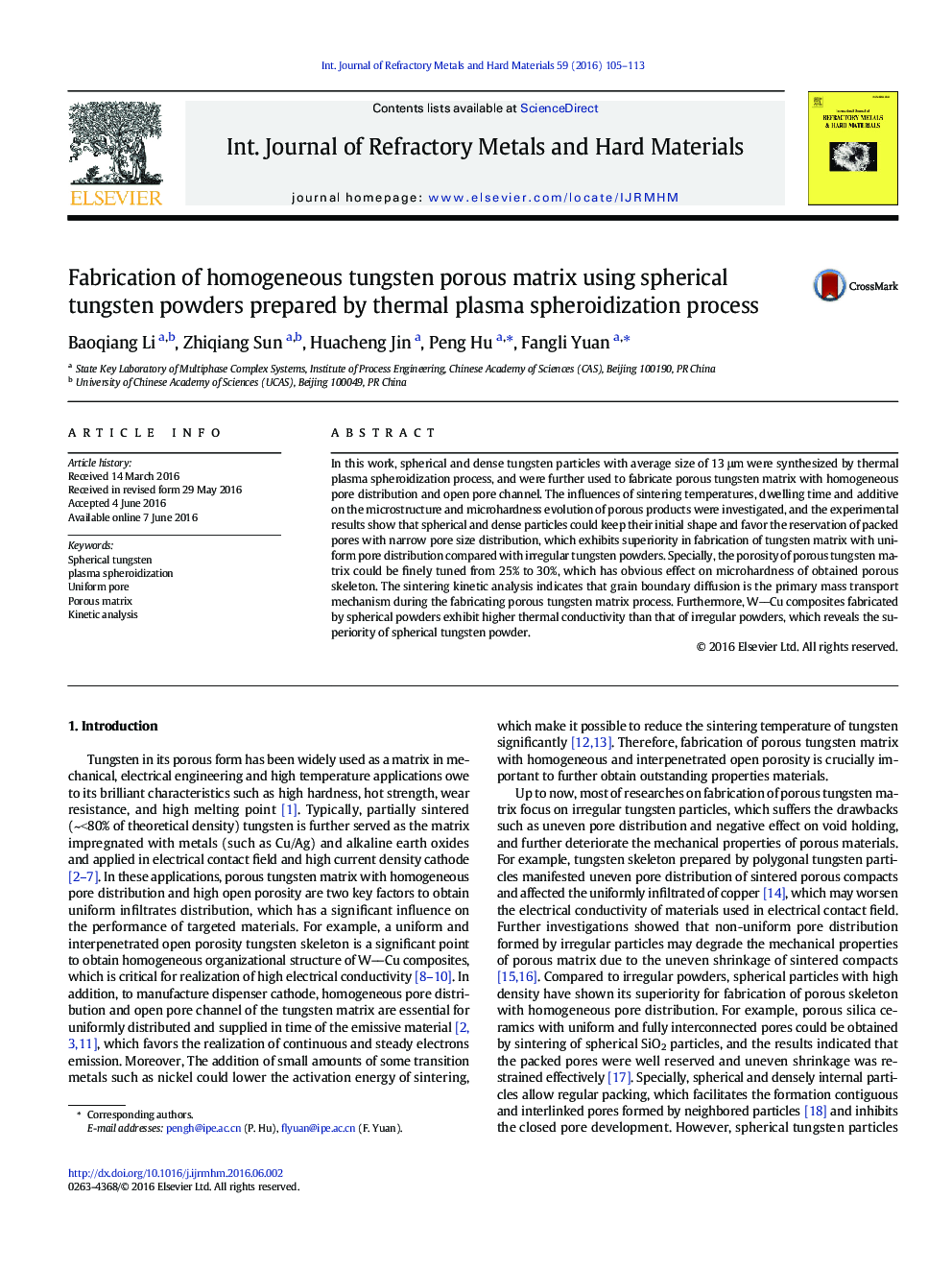| Article ID | Journal | Published Year | Pages | File Type |
|---|---|---|---|---|
| 1602586 | International Journal of Refractory Metals and Hard Materials | 2016 | 9 Pages |
Abstract
In this work, spherical and dense tungsten particles with average size of 13 μm were synthesized by thermal plasma spheroidization process, and were further used to fabricate porous tungsten matrix with homogeneous pore distribution and open pore channel. The influences of sintering temperatures, dwelling time and additive on the microstructure and microhardness evolution of porous products were investigated, and the experimental results show that spherical and dense particles could keep their initial shape and favor the reservation of packed pores with narrow pore size distribution, which exhibits superiority in fabrication of tungsten matrix with uniform pore distribution compared with irregular tungsten powders. Specially, the porosity of porous tungsten matrix could be finely tuned from 25% to 30%, which has obvious effect on microhardness of obtained porous skeleton. The sintering kinetic analysis indicates that grain boundary diffusion is the primary mass transport mechanism during the fabricating porous tungsten matrix process. Furthermore, WCu composites fabricated by spherical powders exhibit higher thermal conductivity than that of irregular powders, which reveals the superiority of spherical tungsten powder.
Related Topics
Physical Sciences and Engineering
Materials Science
Metals and Alloys
Authors
Baoqiang Li, Zhiqiang Sun, Huacheng Jin, Peng Hu, Fangli Yuan,
